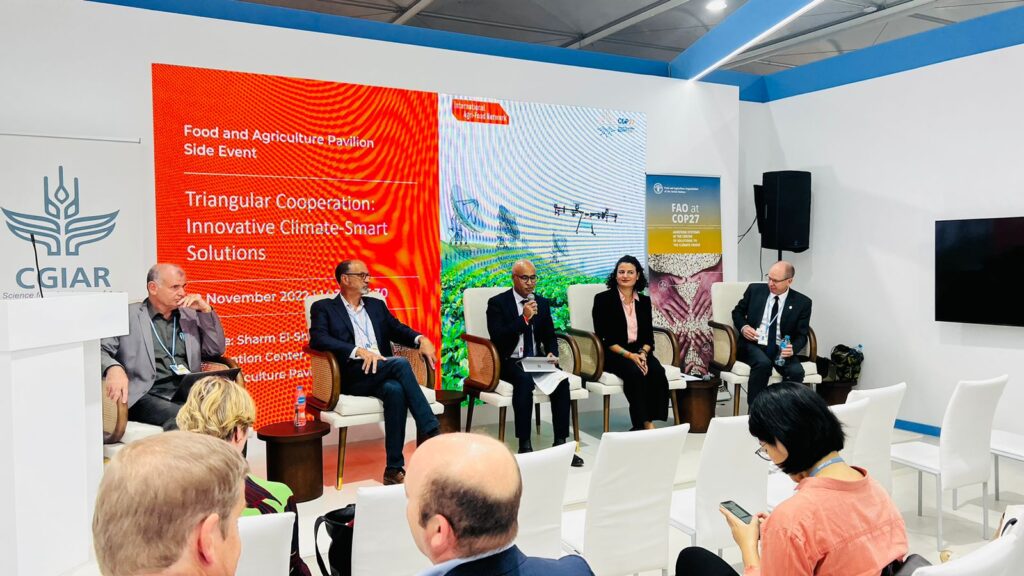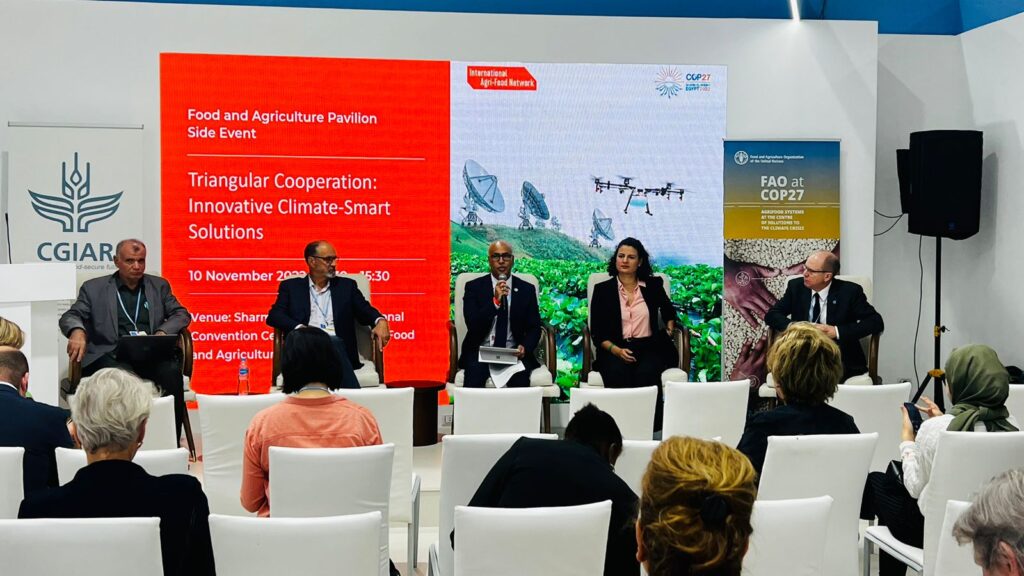World Milk Day 2024 Report – Celebrating Dairy’s Vital Role in Nutrition and Sustainability
This year, on June 1, we celebrated the vital role that dairy plays in delivering…
Thursday, 10 November at 14:30 – 15:30
FAO, CGIAR, Rockefeller Pavilion
The side event on Triangular Cooperation: Innovative Climate-Smart Solutions happened on November 10th at UNFCCC COP27, and was attended by 45 people. Chaired by Mr. Zitouni Ould-Dada, FAO and featuring speakers like Dr. Ahmed Nasr Allah, Country Director, WorldFish Egypt, Mr. Jay Waldvogel, Vice-President, Dairy Farmers of America, Ms. Jihane Ajijti, Head of Stakeholder Engagement, OCP Group, Mr. Ross Hampton, CEO Australian Forest Products Association and myself, Ms. Robynne Anderson, Director General of International Agri-Food Network. Presentations and discussions of climate actions and sustainable initiatives that key partners are leading were made, with a strong component of south-south cooperation and triangular cooperation.
Key takeaways from the event included:

1. African countries need to work together and go hand in hand and try to solve the continent’s greatest challenges together. Private-Public Partnerships are key. The public sector needs to work together with the private sector to scale up climate smart agriculture.
2. African countries need to work together and go hand in hand and try to solve the continent’s greatest challenges together. Private-Public Partnerships are key. The public sector needs to work together with the private sector to scale up climate smart agriculture.
3. South-South cooperation and triangular cooperation is important and can enable multi stakeholder collaboration that can result in the development of better technologies, innovations.
4. The dairy industry reaches 6 billion consumers a year, addressing critical nutrition needs, creating true food security and resilience around the world. The world needs dairy, and the world needs dairy to be better. The dairy sector has a plan to get there – Pathways to Dairy Net Zero. The plan doesn’t ignore the developing world, but it embraces the developing world and its doing it with projects like Dairy Nourishes Africa.
5. Understanding how we connect the North to the South and sharing the technology and knowledge in a way that helps locals solve local problems doesn’t impose Northern solutions but offers help and assistance to get there.
6. All of agriculture in its broadest definition in the FAO definition which means aquaculture, fisheries, livestock, cropping, horticulture, and forestry have a role to play particularly symbiotically towards the path to transforming our food systems.
7. There’s so much great work that can be done by finding ways to link each other in South-South and triangular cooperation.
